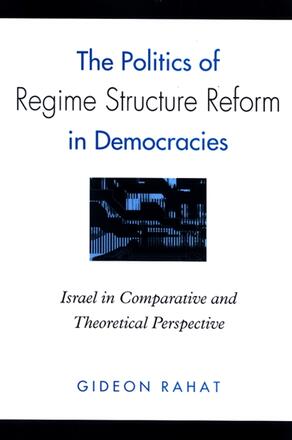
The Politics of Regime Structure Reform in Democracies
Israel in Comparative and Theoretical Perspective
Alternative formats available from:
Analyzes initiatives aimed at reforming the electoral and government systems of Israel in comparison to other established democracies.
Description
This book examines the success or failure of initiatives aimed at reforming regime structures in democracies, particularly their electoral and government systems. Through a comparative analysis of the several attempts at this type of reform in Israel over more than four decades, Gideon Rahat begins with the failed attempts at electoral reform in the 1970s and 1980s. He then analyzes Israel's successful attempt at promoting government system reform from 1988 to 1992. Finally, he compares the Israeli cases to cases of electoral reform in New Zealand, Japan, and Italy in the 1990s. While the book focuses on the Israeli cases, it places Israel within a comparative framework and makes an important contribution to the debate concerning the politics behind regime structure reform.
Gideon Rahat is a Lecturer in the Department of Political Science at the Hebrew University of Jerusalem.
Reviews
"Thoroughly researched and carefully analyzed, this impressive piece of scholarship on party systems and electoral reform will be invaluable for academics, politicians, and policy makers working in this field. For scholars of Israel especially, this book will play an important role in explaining the country's unique electoral history and its various experiments with electoral reform." — John C. Courtney, author of Elections
"Rahat finds just the right balance between the larger theoretical and comparative questions and an informed, detailed analysis of the Israeli experience. This is no simple accomplishment, and he is to be congratulated on the achievement." — Asher Arian, author of Politics in Israel: The Second Republic, Second Edition